- Home
- Anthony Trollope
Framley Parsonage Page 15
Framley Parsonage Read online
Page 15
‘I will certainly tell her about this bill transaction,’ he said to himself; ‘but not to-day; not till after I have seen Lufton.’
That evening they dined at Framley Court, and there they met the young lord; they found also Lady Lufton still in high good humour. Lord Lufton himself was a fine bright-looking young man; not so tall as Mark Robarts, and with perhaps less intelligence marked on his face; but his features were finer, and there was in his countenance a thorough appearance of good humour and sweet temper. It was, indeed, a pleasant face to look upon, and dearly Lady Lufton loved to gaze at it.
‘Well, Mark, so you have been among the Philistines?’ that was his lordship’s first remark. Robarts laughed as he took his friend’s hands, and bethought himself how truly that was the case; that he was, in very truth, already ‘himself in bonds under Philistian yoke.’2 Alas, alas, it is very hard to break asunder the bonds of the latter-day Philistines. When a Samson does now and then pull a temple down about their ears, is he not sure to be engulfed in the ruin with them? There is no horseleech that sticks so fast as your latter-day Philistine.
‘So you have caught Sir George, after all,’ said Lady Lufton, and that was nearly all she did say in allusion to his absence. There was afterwards some conversation about the lecture, and from her ladyship’s remarks, it certainly was apparent that she did not like the people among whom the vicar had been lately staying; but she said no word that was personal to him himself, or that could be taken as a reproach. The little episode of Mrs Proudie’s address in the lecture-room had already reached Framley, and it was only to be expected that Lady Lufton should enjoy the joke. She would affect to believe that the body of the lecture had been given by the bishop’s wife; and afterwards when Mark described her costume at that Sunday morning breakfast-table, Lady Lufton would assume that such had been the dress in which she had exercised her faculties in public.
‘I would have given a five-pound note to have heard it,’ said Sir George.
‘So would not I,’ said Lady Lufton. ‘When one hears of such things described so graphically as Mr Robarts now tells it, one can hardly help laughing. But it would give me great pain to see the wife of one of our bishops place herself in such a situation. For he is a bishop after all.’
‘Well, upon my word, my lady, I agree with Meredith,’ said Lord Lufton. – ‘It must have been good fun. As it did happen, you know, – as the Church was doomed to the disgrace, I should like to have heard it.’
‘I know you would have been shocked, Ludovic’
‘I should have got over that in time, mother. It would have been like a bull fight I suppose, horrible to see no doubt, but extremely interesting. And Harold Smith, Mark; what did he do all the while?’
‘It didn’t take so very long, you know,’ said Robarts.
‘And the poor bishop,’ said Lady Meredith; ‘how did he look? I really do pity him.’
‘Well, he was asleep, I think.’
‘What, slept through it all?’ said Sir George.
‘It awakened him; and then he jumped up and said something.’
‘What, out loud too?’
‘Only one word or so.’
‘What a disgraceful scene!’ said Lady Lufton. ‘To those who remember the good old man who was in the diocese before him it is perfectly shocking. He confirmed you, Ludovic, and you ought to remember him. It was over at Barchester, and you went and lunched with him afterwards.’
‘I do remember; and especially this, that I never ate such tarts in my life, before or since. The old man particularly called my attention to them, and seemed remarkably pleased that I concurred in his sentiments. There are no such tarts as those going in the palace now, I’ll be bound.’
‘Mrs Proudie will be very happy to do her best for you if you will go and try,’ said Sir George.
I beg that he will do no such thing,’ said Lady Lufton, and that was the only severe word she said about any of Mark’s visitings.
As Sir George Meredith was there, Robarts could say nothing then to Lord Lufton about Mr Sowerby and Mr Sowerby’s money affairs; but he did make an appointment for a tête-à-tête on the next morning.
‘You must come down and see my nags, Mark; they came today. The Merediths will be off at twelve, and then we can have an hour together.’ Mark said he would, and then went home with his wife under his arm.
‘Well, now, is not she kind?’ said Fanny, as soon as they were out on the gravel together.
‘She is kind; kinder than I can tell you just at present. But did you ever know anything so bitter as she is to the poor bishop? And really the bishop is not so bad.’
‘Yes; I know something much more bitter; and that is what she thinks of the bishop’s wife. And you know, Mark, it was so unladylike, her getting up in that way. What must the people of Barchester think of her?’
‘As far as I could see the people of Barchester liked it.’
‘Nonsense, Mark; they could not. But never mind that now. I want you to own that she is good.’ And then Mrs Robarts went on with another long eulogy on the dowager. Since that affair of the pardon-begging at the parsonage Mrs Robarts hardly knew how to think well enough of her friend. And the evening had been so pleasant after the dreadful storm and threatenings of hurricanes; her husband had been so well received after his lapse of judgment; the wounds that had looked so sore had been so thoroughly healed, and everything was so pleasant. How all of this would have been changed had she had known of that little bill!
At twelve the next morning the lord and the vicar were walking through the Framley stables together. Quite a commotion had been made there, for the larger portion of these buildings had of late years seldom been used. But now all was crowding and activity. Seven or eight very precious animals had followed Lord Lufton from Leicestershire, and all of them required dimensions that were thought to be rather excessive by the Framley old-fashioned groom. My lord, however, had a head man of his own who took the matter quite into his own hands.
Mark, priest as he was, was quite worldly enough to be fond of a good horse; and for some little time allowed Lord Lufton to descant on the merit of this four-year-old filly, and that magnificent Rattlebones colt, out of a Mousetrap mare; but he had other things that lay heavy on his mind, and after bestowing half-an-hour on the stud, he contrived to get his friend away to the shrubbery walks.
‘So you have settled with Sowerby,’ Robarts began by saying.
‘Settled with him; yes, but do you know the price?’
‘I believe that you have paid five thousand pounds.’
‘Yes, and about three before; and that in a matter in which I did not really owe one shilling. Whatever I do in future, I’ll keep out of Sowerby’s grip.’
‘But you don’t think he has been unfair to you.’
‘Mark, to tell you the truth I have banished the affair from my mind, and don’t wish to take it up again. My mother has paid the money to save the property, and of course I must pay her back. But I think I may promise that I will not have any more money dealings with Sowerby. I will not say that he is dishonest, but at any rate he is sharp.’
‘Well, Lufton; what will you say when I tell you that I have put my name to a bill for him, for four hundred pounds.’
‘Say; why I should say –; but you’re joking; a man in your position would never do such a thing.’
‘But I have done it.’
Lord Lufton gave a long low whistle.
‘He asked me the last night that I was there, making a great favour of it, and declaring that no bill of his had ever yet been dishonoured.’
Lord Lufton whistled again. ‘No bill of his dishonoured! Why, the pocket-books of the Jews are stuffed full of his dishonoured papers! And you have really given him your name for four hundred pounds?’
‘I have certainly.’
‘At what date?’
‘Three months.’
‘And have you thought where you are to get the money?’
‘I know v
ery well that I can’t get it; not at least by that time. The bankers must renew it for me, and I must pay it by degrees. That is, if Sowerby really does not take it up.’
‘It is just as likely that he will take up the national debt.’
Robarts then told him about the projected marriage with Miss Dunstable, giving it as his opinion that the lady would probably accept the gentleman.
‘Not at all improbable,’ said his lordship, ‘for Sowerby is an agreeable fellow; and if it be so, he will have all that he wants for life. But his creditors will gain nothing. The duke, who has his title-deeds, will doubtless get his money, and the estate will in fact belong to the wife. But the small fry, such as you, will not get a shilling.’
Poor Mark! He had had an inkling of this before; but it had hardly presented itself to him in such certain terms. It was, then, a positive fact, that in punishment for his weakness in having signed that bill he would have to pay, not only four hundred pounds, but four hundred pounds with interest, and expenses of renewal, and commission, and bill stamps. Yes; he had certainly got among the Philistines during that visit of his to the duke. It began to appear to him pretty clearly that it would have been better for him to have relinquished altogether the glories of Chaldicotes and Gatherum Castle.
And now, how was he to tell his wife?
[4]
CHAPTER 10
Lucy Robarts
AND now, how was he to tell his wife? That was the consideration heavy on Mark Robarts’ mind when last we left him; and he turned the matter often in his thoughts before he could bring himself to a resolution. At last he did do so, and one may say that it was not altogether a bad one, if only he could carry it out.
He would ascertain in what bank that bill of his had been discounted. He would ask Sowerby, and if he could not learn from him, he would go to the three banks in Barchester. That it had been taken to one of them he felt tolerably certain. He would explain to the manager his conviction that he would have to make good the amount, his inability to do so at the end of the three months, and the whole state of his income; and then the banker would explain to him how the matter might be arranged. He thought that he could pay 50l. every three months with interest. As soon as this should have been concerted with the banker, he would let his wife know all about it. Were he to tell her at the present moment, while the matter was all unsettled, the intelligence would frighten her into illness.
But on the next morning there came to him tidings by the hands of Robin postman, which for a long while upset all his plans. The letter was from Exeter. His father had been taken ill, and had very quickly been pronounced to be in danger. That evening – the evening on which his sister wrote – the old man was much worse, and it was desirable that Mark should go off to Exeter as quickly as possible. Of course he went to Exeter – again leaving the Framley souls at the mercy of the Welsh Low Churchman. Framley is only four miles from Silverbridge, and at Silver-bridge he was on the direct road to the west. He was therefore at Exeter before nightfall on that day.
But nevertheless he arrived there too late to see his father again alive. The old man’s illness had been sudden and rapid, and he expired without again seeing his eldest son. Mark arrived at the house of mourning just as they were learning to realize the full change in their position.
The doctor’s career had been on the whole successful, but nevertheless he did not leave behind him as much money as the world had given him credit for possessing. Who ever does? Dr Robarts had educated a large family, had always lived with every comfort, and had never possessed a shilling but what he had earned himself. A physician’s fees come in, no doubt, with comfortable rapidity as soon as rich old gentlemen and middle-aged ladies begin to put their faith in him; but fees run out almost with equal rapidity when a wife and seven children are treated to everything that the world considers most desirable. Mark, we have seen, had been educated at Harrow and Oxford, and it may be said, therefore, that he had received his patrimony early in life. For Gerald Robarts, the second brother, a commission had been bought in a crack regiment. He also had been lucky, having lived and become a captain in the Crimea; and the purchase-money was lodged for his majority. And John Robarts, the youngest, was a clerk in the Petty Bag Office, and was already assistant private secretary to the Lord Petty Bag himself – a place of considerable trust, if not hitherto of large emolument; and on his education money had been spent freely, for in these days a young man cannot get into the Petty Bag Office without knowing at least three modern languages; and he must be well up in trigonometry too, in Bible theology, or in one dead language – at his option.1
And the doctor had four daughters. The two elder were married, including that Blanche with whom Lord Lufton was to have fallen in love at the vicar’s wedding. A Devonshire squire had done this in the lord’s place; but on marrying her it was necessary that he should have a few thousand pounds, two or three perhaps, and the old doctor had managed that they should be forthcoming. The elder also had not been sent away from the paternal mansion quite empty-handed. There were therefore at the time of the doctor’s death two children left at home, of whom one only, Lucy, the younger, will come much across us in the course of our story.
Mark stayed for ten days at Exeter, he and the Devonshire squire having been named as executors in the will. In this document it was explained that the doctor trusted that provision had been made for most of his children. As for his dear son Mark, he said, he was aware that he need be under no uneasiness. On hearing this read Mark smiled sweetly, and looked very gracious; but, nevertheless, his heart did sink somewhat within him, for there had been a hope that a small windfall, coming now so opportunely, might enable him to rid himself at once of that dreadful Sowerby incubus. And then the will went on to declare that Mary, and Gerald, and Blanche, had also, by God’s providence, been placed beyond want. And here, looking into the squire’s face, one might have thought that his heart fell a little also; for he had not so full a command of his feelings as his brother-in-law, who had been so much more before the world. To John, the assistant private secretary, was left a legacy of a thousand pounds; and to Jane and Lucy certain sums in certain four per cents., which were quite sufficient to add an efficient value to the hands of those young ladies in the eyes of most prudent young would-be Benedicts. Over and beyond this there was nothing but the furniture, which he desired might be sold, and the proceeds divided among them all. It might come to sixty or seventy pounds apiece, and pay the expenses incidental on his death.
And then all men and women there and thereabouts said that old Dr Robarts had done well. His life had been good and prosperous, and his will was just. And Mark, among others, so declared, – and was so convinced in spite of his own little disappointment. And on the third morning after the reading of the will Squire Crowdy, of Creamclotted Hall, altogether got over his grief, and said that it was all right. And then it was decided that Jane should go home with him, – for there was a brother squire who, it was thought, might have an eye to Jane; – and Lucy, the younger, should be taken to Framley Parsonage. In a fortnight from the receipt of that letter Mark arrived at his own house with his sister Lucy under his wing.
All this interfered greatly with Mark’s wise resolution as to the Sowerby-bill incubus. In the first place he could not get to Barchester as soon as he had intended, and then an idea came across him that possibly it might be well that he should borrow the money of his brother John, explaining the circumstances of course, and paying him due interest. But he had not liked to broach the subject when they were there in Exeter, standing, as it were, over their father’s grave, and so the matter was postponed. There was still ample time for arrangement before the bill would come due, and he would not tell Fanny till he had made up his mind what that arrangement would be. It would kill her, he said to himself over and over again, were he to tell her of it without being able to tell her also that the means of liquidating the debt were to be forthcoming.
And now I must say a word about
Lucy Robarts. If one might only go on without those descriptions, how pleasant it would all be! But Lucy Robarts has to play a forward part in this little drama, and those who care for such matters must be made to understand something of her form and likeness. When last we mentioned her as appearing, though not in any prominent position, at her brother’s wedding, she was only sixteen; but now, at the time of her father’s death, somewhat over two years having since elapsed, she was nearly nineteen. Laying aside for the sake of clearness that indefinite term of girl – for girls are girls from the age of three up to forty-three, if not previously married – dropping that generic word, we may say that then, at that wedding of her brother, she was a child; and now, at the death of her father, she was a woman.
Nothing, perhaps, adds so much to womanhood, turns the child so quickly into a woman, as such death-bed scenes as these. Hitherto but little had fallen to Lucy to do in the way of woman’s duties. Of money transactions she had known nothing, beyond a jocose attempt to make her annual allowance of twenty-five pounds cover all her personal wants – an attempt which was made jocose by the loving bounty of her father. Her sister, who was three years her elder – for John came in between them – had managed the house; that is, she had made the tea and talked to the housekeeper about the dinners. But Lucy had sat at her father’s elbow, had read to him of evenings when he went to sleep, had brought him his slippers and looked after the comforts of his easy-chair. All this she had done as a child; but when she stood at the coffin head, and knelt at the coffin side, then she was a woman.
She was smaller in stature than either of her three sisters, to all of whom had been acceded the praise of being fine women – a eulogy which the people of Exeter, looking back at the elder sisters, and the general remembrance of them which pervaded the city, were not willing to extend to Lucy. ‘Dear – dear!’ had been said of her; ‘poor Lucy is not like a Robarts at all; is she, now, Mrs Pole?’ – for as the daughters had become fine women, so had the sons grown into stalwart men. And then Mrs Pole had answered: ‘Not a bit; is she, now? Only think what Blanche was at her age. But she has fine eyes, for all that; and they do say she is the cleverest of them all.’

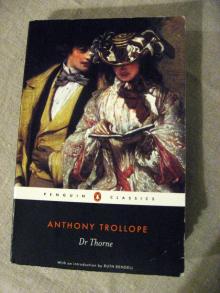 Doctor Thorne
Doctor Thorne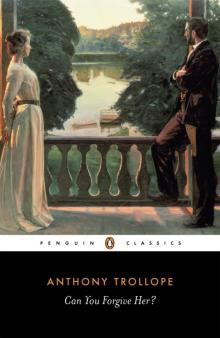 Can You Forgive Her?
Can You Forgive Her?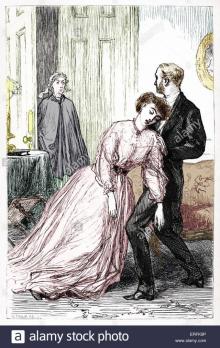 The Last Chronicle of Barset
The Last Chronicle of Barset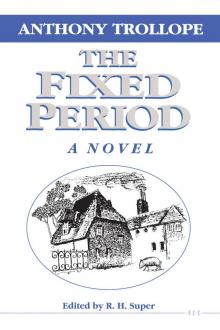 The Fixed Period
The Fixed Period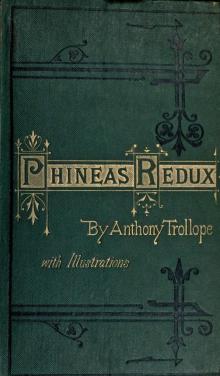 Phineas Redux
Phineas Redux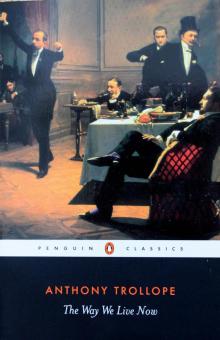 The Way We Live Now
The Way We Live Now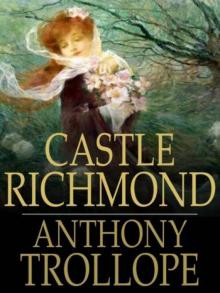 Castle Richmond
Castle Richmond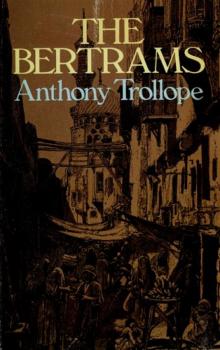 The Bertrams
The Bertrams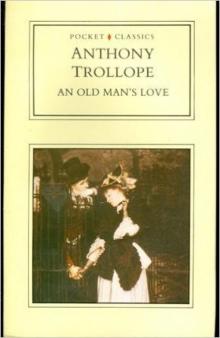 An Old Man's Love
An Old Man's Love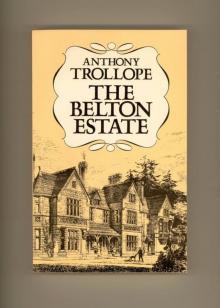 The Belton Estate
The Belton Estate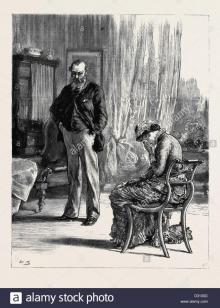 Marion Fay: A Novel
Marion Fay: A Novel The Claverings
The Claverings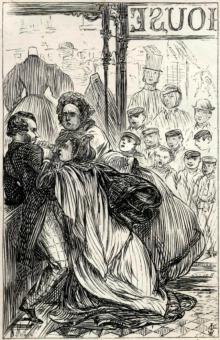 The Struggles of Brown, Jones, and Robinson
The Struggles of Brown, Jones, and Robinson Nina Balatka
Nina Balatka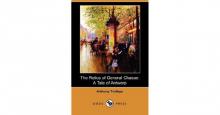 The Relics of General Chasse: A Tale of Antwerp
The Relics of General Chasse: A Tale of Antwerp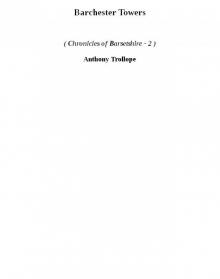 Barchester Towers cob-2
Barchester Towers cob-2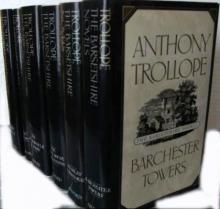 The Chronicles of Barsetshire
The Chronicles of Barsetshire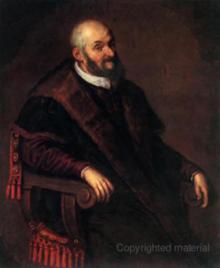 The Warden cob-1
The Warden cob-1 Framley Parsonage
Framley Parsonage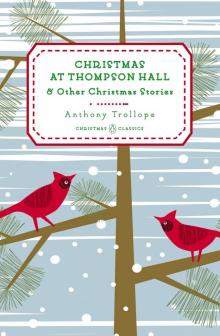 Christmas at Thompson Hall
Christmas at Thompson Hall The Warden
The Warden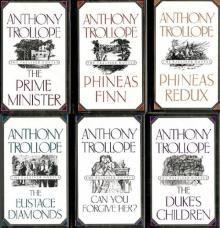 The Palliser Novels
The Palliser Novels The Small House at Allington
The Small House at Allington Barchester Towers
Barchester Towers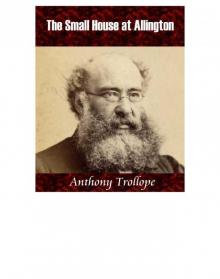 The Small House at Allington cob-5
The Small House at Allington cob-5 The Duke's Children
The Duke's Children Phineas Finn, the Irish Member
Phineas Finn, the Irish Member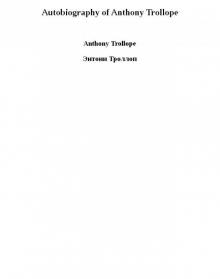 Autobiography of Anthony Trollope
Autobiography of Anthony Trollope